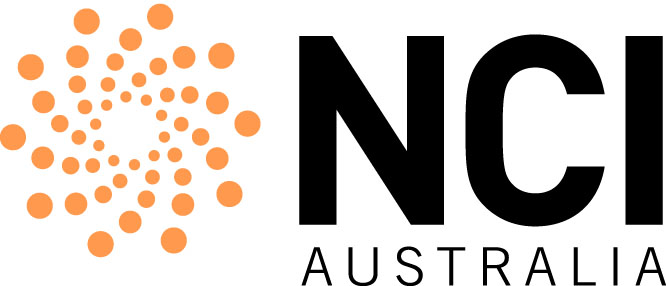4 content providers found
Keywords: FAIR data or National Research Infrastru... or astronomy-focused training or supercomputer
-

NCI
NCI is Australia’s leading high-performance data, storage and computing organisation, providing...
0 upcoming event (41 past event)NCI https://nci.org.au https://dresa.org.au/content_providers/nci-australia-national-computational-infrastructure NCI is Australia’s leading high-performance data, storage and computing organisation, providing expert services to benefit all domains of science, government and industry. NCI brings the Australian Government and the Australian research sector together through a broad collaboration involving the largest national science agencies, universities, industry and the Australian Research Council. NCI empowers government agencies, universities, and industry across multiple domains of research. Our integrated hardware, services and expertise drive high-impact research and groundbreaking outcomes for Australia. /system/content_providers/images/000/000/011/original/NCI_Australia_logo.jpg?1633670199 -

Heurist Network
### What is Heurist? Heurist is a comprehensive, flexible data management service built...
1 training material0 upcoming event (15 past event)Heurist Network https://heuristnetwork.org https://dresa.org.au/content_providers/heurist-network ### What is Heurist? Heurist is a comprehensive, flexible data management service built specifically for the Humanities, available both as a free service, or for download to a private server (open source). Its development has been driven and informed by dozens of Humanities research projects. Heurist is a human-centered interface to a MySQL (or other SQL server) database. It operates as a hybrid relational / graph database, hiding all the complexity of SQL, tables, relational joins, relational integrity etc. behind (fairly) simple choices. It’s available on a number of non-commercial web services (free to use) and on private web servers. You can also install it on your own server if you wish. ### What we offer We offer frequent training and collquia for our users, indeed for all Humanities researchers who use digital methods and require a database. Our users are a diverse community of researchers across Australasia, Europe, Asia, Africa and the Americas. We also offer one-on-one support and ad-hoc training for projects who use our technology, or individuals who need a hand gettings started with Humanities databasing. /system/content_providers/images/000/000/018/original/h6logo_intro.png?1653544233 -

Atlas of Living Australia
The Atlas of Living Australia (ALA) is a collaborative, digital, open infrastructure that pulls...
0 upcoming event (1 past event)Atlas of Living Australia https://www.ala.org.au/ https://dresa.org.au/content_providers/atlas-of-living-australia The Atlas of Living Australia (ALA) is a collaborative, digital, open infrastructure that pulls together Australian biodiversity data from multiple sources, making it accessible and reusable. The ALA helps to create a more detailed picture of Australia’s biodiversity for scientists, policymakers, environmental planners and land managers, industry and the general public and enables them to work more efficiently. The ALA is the Australian node and a full voting member of GBIF – the Global Biodiversity Information Facility – an international network and data infrastructure funded by the world’s governments and aimed at providing anyone, anywhere, open access to data about all types of life on Earth. /system/content_providers/images/000/000/017/original/ALA_Logo_Inline_CMYK.jpg?1652413583 -

Astronomy Data And Computing Services (ADACS)
Our Vision is to provide astronomy-focused training, support and expertise to allow astronomers...
Astronomy Data And Computing Services (ADACS) https://www.adacs.org.au https://dresa.org.au/content_providers/astronomy-data-and-computing-services-adacs Our Vision is to provide astronomy-focused training, support and expertise to allow astronomers to maximise the scientific return from data and computing infrastructure. ADACS is delivered jointly by Swinburne University of Technology, Curtin University, and Macquarie University. ADACS is funded under Astronomy National Collaborative Research Infrastructure Strategy (NCRIS) Program via Astronomy Australia Ltd (AAL). /system/content_providers/images/000/000/033/original/ADACSLogo.png?1708671870